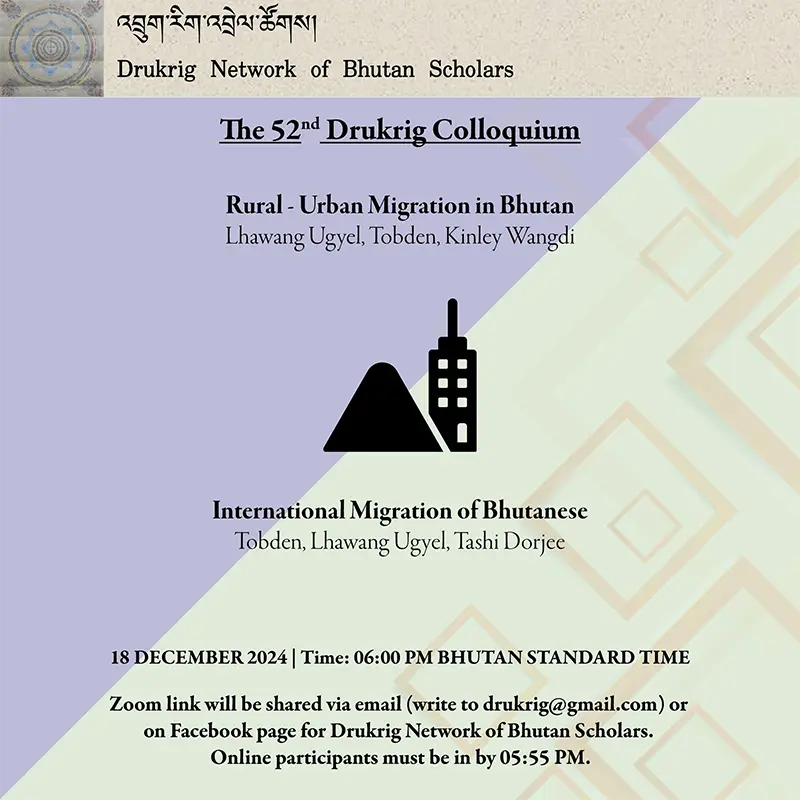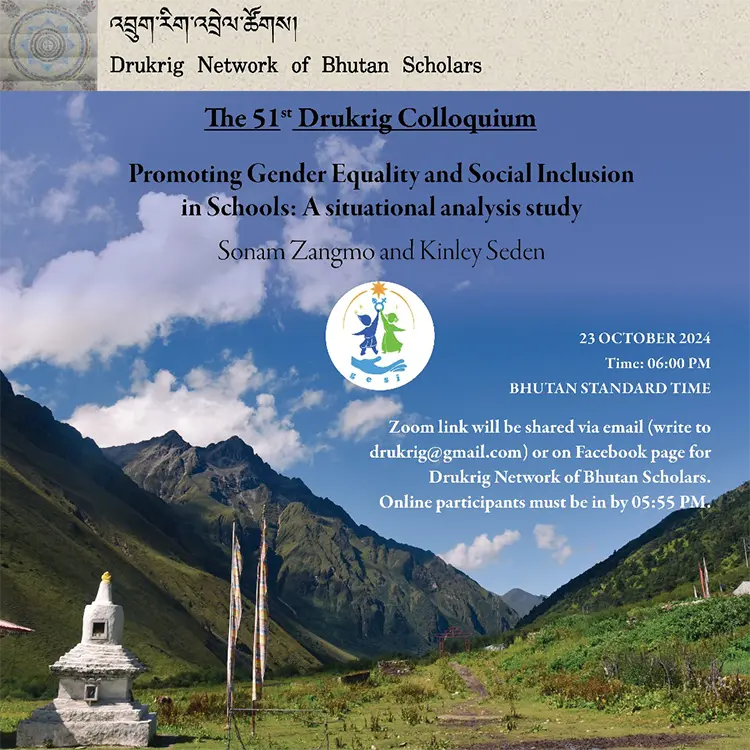Of Identity, Spirituality, Community, and the Sacred Chronotrope in Bhutan
This session explores the intersection of identity, spirituality, and community in Bhutan through the lens of the "Sacred Chronotrope," a concept that intertwines time, space, and sacred narratives. The Sacred Chronotrope refers to the idea that certain locations, events, or practices in Bhutan are imbued with spiritual significance, shaping not only the cultural and social identity of its people but also their connection to the divine and the natural world.
The discussion delves into how Bhutanese identity is deeply rooted in the country’s unique spiritual traditions, particularly Buddhism, and how this identity is reinforced through sacred sites, rituals, and communal practices. Bhutan's sense of self is not only influenced by historical and cultural narratives but is also closely tied to the sacred geography of the land—the monasteries, temples, and pilgrimage sites that play a central role in daily life.
The concept of the Sacred Chronotrope is examined in the context of Bhutanese religious practices and how these sacred times and spaces act as a medium for personal transformation and collective memory. This idea also highlights how Bhutan’s community structures, both within the monastic and lay populations, form a cohesive whole through their shared spiritual beliefs and the sacred rhythms of the calendar, festivals, and rituals.
By exploring these interconnected themes, the session offers insights into how Bhutan’s spiritual and cultural practices continue to shape the nation's collective identity and guide its social fabric, fostering a sense of unity and purpose in both the present and across generations.



